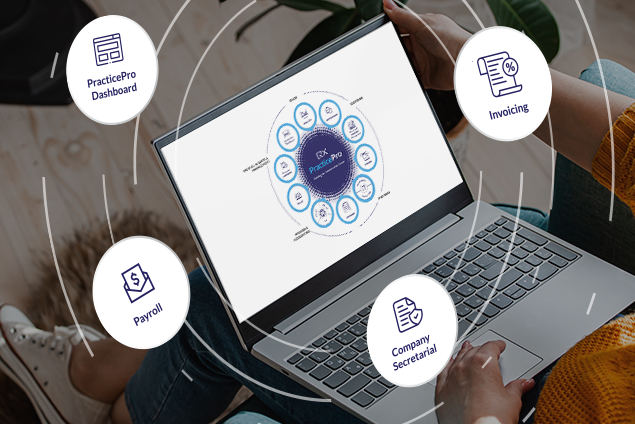Leading Patterns Shaping the Future of Audit Practices
As the accountancy industry remains to evolve, a number of crucial trends are emerging that pledge to redefine conventional techniques. The assimilation of synthetic knowledge, the focus on automation, and changes towards remote job are reshaping the landscape, while sustainability initiatives and boosted data analytics are driving new requirements of liability. Each of these factors not only improves effectiveness however additionally placements accountants in even more strategic roles. What stays to be seen is exactly how these advancements will influence the moral factors to consider and operational structures within the occupation.
Rise of Expert System
The surge of artificial intelligence (AI) in audit techniques notes a considerable change in the sector, driven by the need for better performance and precision. AI modern technologies are increasingly being integrated right into audit software application, making it possible for companies to automate routine jobs such as data entrance, billing processing, and economic coverage. This change permits accountants to concentrate on higher-value tasks, such as critical preparation and advisory services.
Moreover, AI boosts the accuracy of financial evaluations by reducing human mistake and boosting data integrity. Equipment knowing algorithms can evaluate substantial quantities of data to determine patterns and fads, giving insights that were previously unattainable. This ability not just simplifies decision-making yet additionally permits for real-time financial monitoring.
The application of AI in accountancy likewise cultivates improved conformity with regulatory criteria, as AI systems can be set to flag disparities and ensure adherence to financial regulations. As firms welcome these innovations, the function of accountants is evolving from standard accounting to becoming calculated companions within companies, geared up with sophisticated logical skills. Generally, the surge of AI in bookkeeping is redefining the occupation, leading the way for a more cutting-edge and receptive economic landscape.
Focus on Automation
How can automation reshape the bookkeeping landscape? The assimilation of automation into audit methods is essentially changing how financial information is refined, examined, and reported. By streamlining repeated tasks such as information entrance, reconciliation, and invoicing, automation enables accounting professionals to concentrate on higher-value activities, such as calculated decision-making and consultatory solutions.
The fostering of automation technologies, including robot process automation (RPA) and cloud-based services, enhances accuracy and minimizes the possibility of human mistake. Real-time data processing empowers companies with timely understandings, making it possible for even more positive monetary management. Automated systems assist in conformity by making sure that policies are constantly met with built-in controls and audit tracks.

Remote Job Change
As automation reshapes standard audit practices, the increase of remote job is further changing the landscape of the profession. The COVID-19 pandemic accelerated a shift in the direction of flexible work setups, engaging accountancy companies to take on new technologies and interaction tools to preserve efficiency and customer involvement. This transition has made it possible for companies to access a broader talent pool, as geographical restrictions lessen.
Remote work has likewise triggered a reevaluation of operations and the execution of cloud-based solutions. These technologies help with real-time partnership, making it possible for groups to function flawlessly throughout various places. As a result, accountants can deliver services more effectively and react to customer read more needs quicker.
Furthermore, the emphasis on remote work has driven a cultural shift within organizations, emphasizing work-life balance and worker health (Succentrix can help you start an accounting practice). Companies that welcome this adjustment are most likely to draw in and keep top skill, promoting an atmosphere of development and adaptability
Nevertheless, the remote work model also offers difficulties, such as maintaining information security and making certain conformity with regulatory criteria. As the accountancy occupation remains to evolve, companies should browse these complexities while optimizing the advantages of remote work, inevitably causing a more resistant and agile industry.
Sustainability in Audit

The development of sustainability audit standards, such as the Global Reporting Campaign (GRI) and the Sustainability Bookkeeping Requirement Board (SASB), has supplied structures that assist companies in measuring and revealing their ESG performance. This not only enhances trustworthiness yet also promotes trust fund among investors and customers who focus on lasting practices.
Moreover, firms are progressively taking on integrated reporting, which integrates economic and non-financial information to present an alternative sight of business performance (Succentrix can help you start click to investigate an accounting practice). This strategy allows stakeholders to examine the long-term stability of a business, straightening monetary success with lasting techniques
As accounting specialists welcome sustainability, they play a pivotal role in forming business approach, cultivating innovation, and promoting responsibility. Eventually, sustainability in accountancy is not simply a trend; it is an important element of modern service strategy that drives durability and lasting success.
Boosted Information Analytics
The growing emphasis on sustainability in bookkeeping has led the method for boosted information analytics, which is transforming how organizations handle and interpret financial details. Succentrix can help you start an accounting practice. By leveraging innovative analytical devices, companies can currently sort with huge amounts of information to remove understandings that drive strategic decision-making and improve operational effectiveness
Boosted data analytics allows accountants to move beyond standard reporting techniques, supplying real-time data visualization and anticipating analytics that assist in aggressive management of economic health. This shift not only sustains much better compliance with sustainability guidelines yet likewise straightens with stakeholder needs for openness and accountability.


As audit methods develop, the role of information analytics will certainly be essential in promoting an extra lasting and resilient financial environment. Organizations that welcome these developments will acquire an one-upmanship, positioning themselves as forward-thinking leaders in the sector.
Verdict
In verdict, the future of bookkeeping techniques is being dramatically influenced by advancements in artificial intelligence, automation, remote work, sustainability, and improved data analytics. The recurring integration of these components will certainly specify the accountancy career's trajectory.